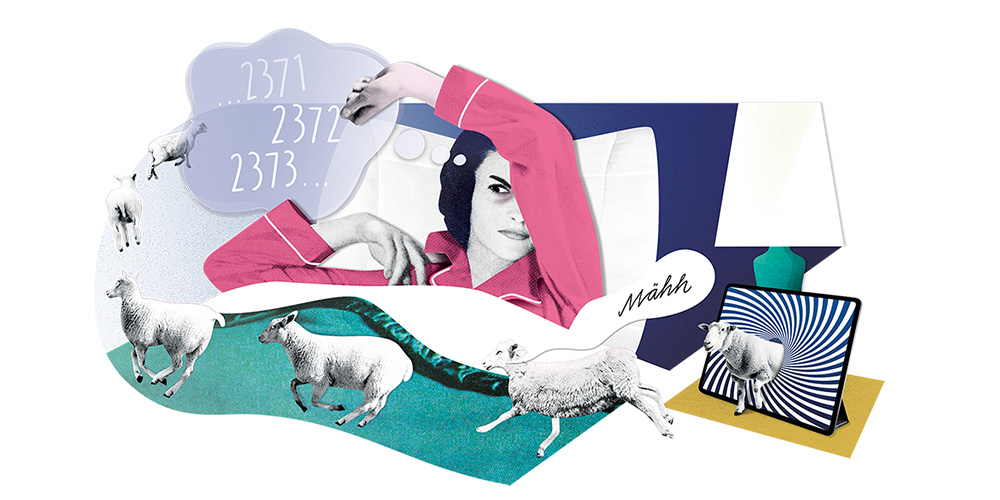Does blue light really keep you awake?
Text: Christian Cajochen
Smartphone and tablet screens emit blue light. Some people speculate that this light keeps us awake. In response, many glasses now come with a blue light filter. But is there any point? Chronobiologist Christian Cajochen sets the record straight.
Blue light is part of the light spectrum. Certain receptors in the retina are highly sensitive to blue light. In contrast to other receptors, receptors containing the photopigment melanopsin use neurons to send stimuli to regions of the brain that control how alert we are. This means that light in a specific wavelength range (480 nm) really does keep us awake. Depending on the time of day, the body can use this to its advantage. But it’s definitely a drawback when we want to sleep.
Where possible, in the evening I would recommend restricting light consumption – screen light, to be precise – and putting away your phone or tablet one to two hours before going to bed. If you can’t or don’t want to do this, you can switch to bedtime mode, which reduces blue light. It has been proven that anything that reduces light intensity and its melanopic content in the evening will support our internal body clock and help us to fall asleep more easily.
In my opinion, however, glasses with blue light filters are unnecessary – particularly if used during the day, when we need lots of daylight with a high concentration of blue light to calibrate our body clock. Glasses might be useful in the evening before going to sleep, but only if you haven’t switched your phone to bedtime mode. If you have, they will impair visual quality and you’ll just end up bringing the screen even closer to your face, ultimately getting even more light than you would otherwise. So there’s little sense in doing both.
Our research has also shown that we can counter the undesirable effect of blue light in the evening by specifically reducing the screen’s melanopic light. If you turn down the melanopsin regulator on the screen, your melanopsin receptors will receive less stimulation, but the image quality will remain the same (the screen isn’t yellow/orange). Melatonin (the hormone of darkness) will not be suppressed, and you’ll fall asleep faster.
Christian Cajochen heads the Center for Chronobiology at the University Psychiatric Clinics of the University of Basel. One of his research interests is in particular the influence of light on human sleep as well as the circadian rhythm and its changes in mentally ill people.
More articles in this issue of UNI NOVA (November 2023).

